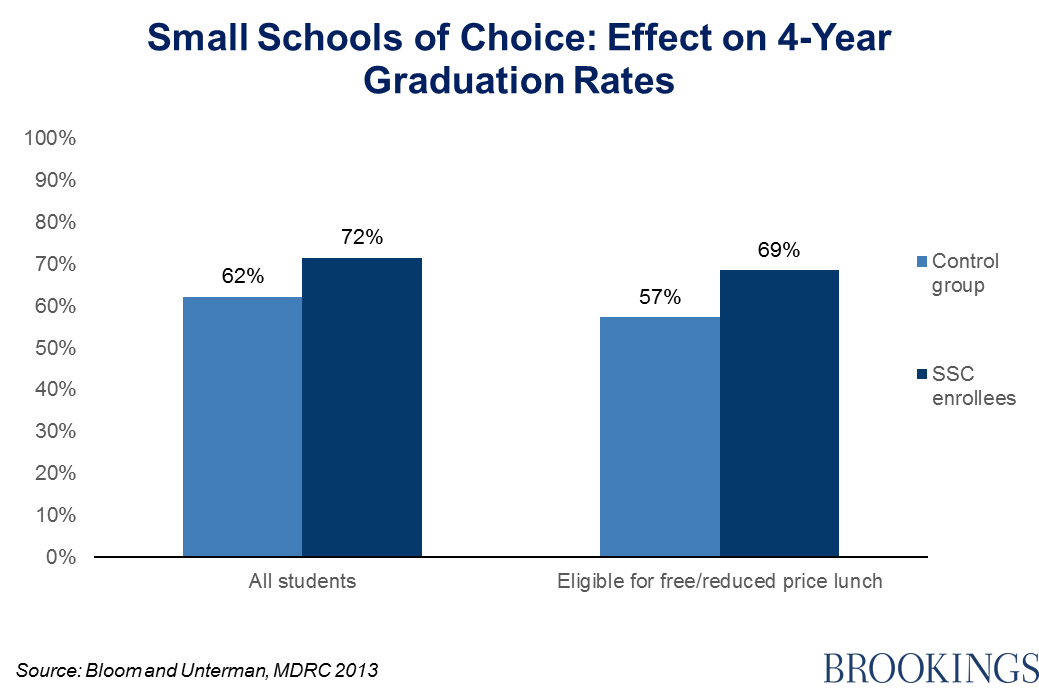A 2015 Brookings report written for the campaign season is still relevant today. Researcher Isabel Sawhill lays out a few major ideas candidates could use to reduce poverty and improve economic mobility. Three hurdles necessary for climbing out of poverty are:
- Graduating high school
- Working full-time
- Delaying parenthood until they in a stable, two-parent family
Sawhill proposes a number of policies aimed at helping people achieve these objectives:
- To improve high school graduation rates, expand “Small Schools of Choice,” a program in New York City, which replaced large, existing schools with more numerous, smaller schools that had a theme or focus (like STEM or the arts). The program increased graduation rates by about 10 percentage points and also led to higher college enrollment with no increase in costs.

- To support work, make the Child and Dependent Care Tax Credit (CDCTC) refundable and cap it at $100,000 in household income. Because the credit is currently non-refundable, low-income families receive little or no benefit, while those with incomes above $100,000 receive generous tax deductions. This proposal would make the program more equitable and facilitate low-income parents’ labor force participation, at no additional cost.
- To strengthen families, make the most effective forms of birth control (IUDs and implants) more widely available at no cost to women, along with good counselling and a choice of all FDA-approved methods. Programs that have done this in selected cities and states have reduced unplanned pregnancies, saved money, and given women better ability to delay parenthood until they and their partners are ready to be parents. Delayed childbearing reduces poverty rates and leads to better prospects for the children in these families.
Check out the full paper.